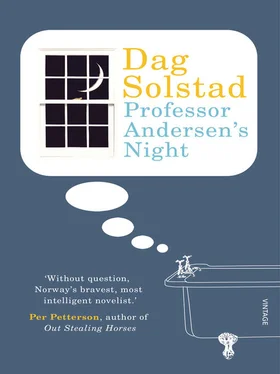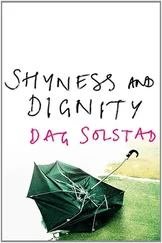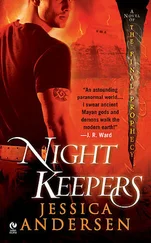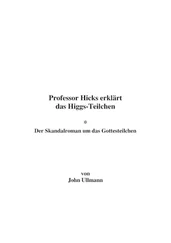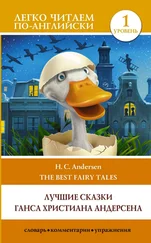Dag Solstad - Professor Andersen's Night
Здесь есть возможность читать онлайн «Dag Solstad - Professor Andersen's Night» весь текст электронной книги совершенно бесплатно (целиком полную версию без сокращений). В некоторых случаях можно слушать аудио, скачать через торрент в формате fb2 и присутствует краткое содержание. Год выпуска: 2011, Издательство: Harvill Secker, Жанр: Современная проза, на английском языке. Описание произведения, (предисловие) а так же отзывы посетителей доступны на портале библиотеки ЛибКат.
- Название:Professor Andersen's Night
- Автор:
- Издательство:Harvill Secker
- Жанр:
- Год:2011
- ISBN:нет данных
- Рейтинг книги:3 / 5. Голосов: 1
-
Избранное:Добавить в избранное
- Отзывы:
-
Ваша оценка:
- 60
- 1
- 2
- 3
- 4
- 5
Professor Andersen's Night: краткое содержание, описание и аннотация
Предлагаем к чтению аннотацию, описание, краткое содержание или предисловие (зависит от того, что написал сам автор книги «Professor Andersen's Night»). Если вы не нашли необходимую информацию о книге — напишите в комментариях, мы постараемся отыскать её.
Professor Andersen fails to report the crime. The days pass, and he becomes paralysed by indecision. Desperate for respite, the professor sets off to a local sushi bar, only to find himself face to face with the murderer.
Professor Andersen's Night
Professor Andersen's Night — читать онлайн бесплатно полную книгу (весь текст) целиком
Ниже представлен текст книги, разбитый по страницам. Система сохранения места последней прочитанной страницы, позволяет с удобством читать онлайн бесплатно книгу «Professor Andersen's Night», без необходимости каждый раз заново искать на чём Вы остановились. Поставьте закладку, и сможете в любой момент перейти на страницу, на которой закончили чтение.
Интервал:
Закладка:
He gave the address to the driver, who drove him through the snowy streets of Oslo all lit up with Christmas lights. It had stopped snowing, but the road conditions were terrible. The taxi drove slowly through the streets, which were impassable except by means of two deep tyre tracks down the middle, and on meeting another car, one of them had to reverse. But he could observe snowploughs everywhere and other snow-clearing vehicles, which were working flat out with loops of yellow lights in all directions. They gave off a roar. The driver was from Pakistan and drove safely and carefully through the almost snowbound but lamplit streets. There were few people to be seen, even in the main streets which they crossed, such as Bogstadveien. Professor Andersen was sitting in the back seat, feeling tense. He couldn’t get home soon enough. Eventually, the taxi drew up at the building where he lived at Skillebekk, and he paid and got out. He quickly unlocked the main door, went up the stairs and let himself into his own apartment, where he put on the light in the hall and hung up his overcoat. Then he went into the living room, without putting on the light, where he moved over to the window and stared across at the building on the other side of the street. The curtains were drawn back. The light was on. Finally! Now he would be able to see. Professor Andersen stood in the pitch dark in his own living room, half-hidden behind the curtain, and stared out. He noticed a figure walking through the room. Professor Andersen stared as hard as he could, but the whole thing happened so fast that he couldn’t quite grasp what he had seen, even though the figure hadn’t walked particularly quickly through the room. He thought it was a man, but he wasn’t absolutely certain. Professor Andersen waited. The silhouette had disappeared, probably sitting somewhere out of sight, but Professor Andersen waited. Eventually the silhouette turned up again. The figure walked through the lit-up room and went over now towards the window. A face stared out and Professor Andersen saw the murderer’s face. Not all that clearly, not to the extent that he would have been able to recognise the person on the street later on, but he saw that it was a youngish man.
Was he disappointed? Had he hoped that the figure which passed through the room had been a woman after all, and that the young woman with fair hair would be standing at the window now? Professor Andersen didn’t know. If he had been hoping this, and it had been keeping him glued to this window, and to this view, both in reality and in his thoughts, then his hope had been unrealistic and actually a prayer for a miracle. Or rather a prayer that he, Professor Andersen, might not be able to trust his own senses, his own eyes, in decisive situations, and that what he thought he saw might equally well be a fantasy or a hallucination, had he cherished such a hope? Even, when all is said and done, if it meant his reason was threatened? Or was what he saw now exactly what he had hoped to see: the murderer’s face? Professor Andersen didn’t know, and suddenly he started to cry, not with tears, but with words. ‘I’m crying,’ he said, and gave himself over to this simple sentence, which he repeated several times while he stood at the window, long after the youngish man in the other window had turned away, walked through the room and retreated out of sight, to somewhere from which he didn’t reappear.
The next day was the day after Boxing Day, a working day, shops and offices, banks and post offices were open. Professor Andersen decided to go away for a while. He packed a small suitcase and took a taxi out to Fornebu Airport, where he checked in on the first plane to Trondheim. He phoned the Britannia Hotel and booked a room. Then he called one of his colleagues and said that he was going to be in Trondheim over the New Year, and they arranged to meet the next day. On the plane trip up there it was so overcast that he couldn’t see a thing. From Værnes he took the airport bus to the Britannia Hotel and checked in. On the flight he had ploughed through the newspapers and, as he expected, found nothing about the murder he had witnessed. Now he ploughed through them again. Nothing. No woman reported missing, for instance, who could be connected to what he had witnessed. He went outside and strolled around the streets of Trondheim. The man’s name was Henrik Nordstrøm. He had found that out before deciding to go to Trondheim. He had gone across the street and stopped in front of the main door of the building, and had found out which nameplate and doorbell must belong to the apartment where he had seen the murderer’s face the evening before. As ever when he visited Trondheim, he went into the late-twelfth-century cathedral, the only thing from the Norwegian Middle Ages that bears witness to a sophisticated culture. He also popped into Erichsen’s coffee shop and had a cup of coffee and a piece of cake; that, too, was a habit of his. While he was walking around the streets, he suddenly bumped into his colleague’s ex-wife, with whom he had to pass the time of day, as it was too late to pretend he hadn’t noticed her. He didn’t mention that he was going to meet her ex-husband the next day. When he came back to the Britannia, a man who had been sitting in the foyer got to his feet and came towards him. It was his colleague. He would really like to meet him at once, today, he said, since he didn’t have anything special on. That pleased Professor Andersen and he invited his colleague up to his room.
He told his colleague to take a seat in an armchair, while he fetched a bottle of whisky, which he had wisely just bought at the Wine Monopoly in Kjøpmannsgata in Trondheim. He got hold of ice cubes and Farris mineral water from the mini-bar, while he went on about how one had to be careful that it was blue Farris one had, and not yellow. Once, it was at Hoyer’s Hotel in Skien, he had just taken Farris without thinking any more about it, and his whisky had a taste of lemon. ‘Bloody hell! And the worst of it was,’ said Professor Andersen as he put two empty glasses, blue Farris and a glass of ice cubes on the table, ‘there was just yellow Farris in the mini-bar. What a hotel!’ ‘That’s so the guests don’t sit in their rooms drinking whisky, but go down to the bar and buy it there,’ said his colleague. ‘Yes, of course, but still, it’s not particularly agreeable.’ They both poured themselves a whisky and skolled their unexpected encounter. When Professor Andersen saw that his colleague was sitting there, dying to know what on earth had brought him to Trondheim in the Christmas period, he decided to come straight to the point. ‘Have you ever thought,’ he said, ‘how short a historical memory we have? Can you remember your own grandparents?’ ‘Yes, of course,’ said his colleague, surprised, ‘I remember them well.’ ‘I do, too,’ said Professor Andersen, ‘even though both my grandparents were dead when I was born. But I’ve heard so much about them that for that reason I can say, historically speaking, that I know them. But what about your great-grandparents?’ His colleague went quiet; he was thinking about it. ‘You know, I don’t know much about them.’ ‘You do have eight great-grandparents,’ said Professor Andersen with emphasis on the words. ‘And there is probably barely a hundred years between the birth of the eldest of them and you. And already they’re no longer part of your consciousness. Indeed, even worse, they’ve never existed in your consciousness.’ His colleague looked rather taken aback. ‘It isn’t as bad as all that,’ he said, after he had thought about it. ‘I do know something. I’ve even seen one of them in a photograph. He was a shoemaker in Fredrikstad.’ ‘And where is that photograph now?’ ‘Ah, I don’t know that.’ ‘And you call that knowing something about your great-grandparents?’ His colleague looked a little taken aback again. ‘You’re right,’ he said. ‘It’s peculiar, and I’ve never even thought about it before.’ ‘It’s more than peculiar,’ said Professor Andersen, ‘it’s embarrassing. Perhaps even frightening. Here we are, the two of us, sitting in a hotel room in Trondheim around Christmas, and the light of our consciousness doesn’t reach back more than two generations. After that it begins to fade, a twilight memory here, a photograph no one knows the whereabouts of there. Then it’s dark. And we are both professors of literature.’ ‘Yes, indeed, of literature. We aren’t historians,’ said his colleague, defending himself. ‘Besides, we do have another kind of recollection which goes much further than our ties of kinship, we remember things with a connection to our work, in our case within the field of literature. You know many tales about Ludvig Daae, too, don’t you? Or you can conjure up the memory of Lorentz Dietrichsson, indeed, maybe even Jonas Collett?’ his colleague said triumphantly. ‘You’re right about that. But these eight great-grandparents of yours have nevertheless given you your genes; barely sixty or seventy years ago they were young and passed on their genes to the person who in turn bred the person who gave you your genes, and you have no recollection of them — isn’t it …?’ ‘Well, yes, peculiar. Not embarrassing. And not frightening,’ his colleague broke in. ‘I find it frightening,’continued Professor Andersen, unremittingly. ‘What does it mean? Is it something common to humans, in other words a human trait, as living creatures, which we haven’t bothered to register, because the fact that humans are historical beings is so commonplace that it can’t be challenged? Or is it a characteristic of humanity in the present day, and in our cultural circle? Or does it only apply to us who come from the common people? I don’t know, but it has something to do with our day and age, that’s for sure. There is something about it which makes us not particularly interested in what has gone before us, at any rate much less than we pretend is the case. It has something to do with being modern. And it must have begun early on, for both of us would have known about our great-grandparents if our parents had any interest in telling us about them, but evidently they didn’t; it isn’t that they quite simply forgot them, I don’t believe that. Our down-to-earth parents, these stuffy people, with their enthusiasm for plastic and the weather forecasts on the radio, must, in that case, have been bearers of a fundamental modernity, which they’ve passed on to us, without anyone being aware of it even. This has only dawned on me quite recently. The fact that my enlightened consciousness goes back no further than two generations, then it’s dark.’ ‘But now I must be allowed to interrupt you a moment,’ said his colleague eagerly, ‘because with regard to what you’re saying, I can only answer that there are few countries where you’ll find so great an interest in history as in our country, particularly history at the grass-roots level. Remember, every single town or small village has its own local history book, usually in three volumes. And every generation would like to write a new one, right from scratch and in three volumes. So don’t give me that. Or take the enormous interest there is in genealogy in this country. Or all the kinship gatherings at which people assemble every summer.’ ‘Well, well, that’s true. But nonetheless it doesn’t apply to either of us, and we are, after all, professors of literature. Our common social consciousness isn’t influenced by these cranky genealogists or local historians. Praiseworthy though they may be, these cranks who sit beside us in the University Library pursuing the traces of their own origins down through the ages, though they ought to give us hope, because they demonstrate that it is possible to break out of this common consciousness and go one’s own way, if only one’s passion and personal determination are great enough, they are and remain cranks who fail to leave any mark on the common consciousness, no matter how sympathetic our attitude may be to their pursuits, and not least to the intentions behind them. They are and will continue to be total outsiders. They do not affect us, our very structure and sensibility, which form the way we think. Indeed, it frightens me,’ he repeated. ‘It really frightens me. It frightens me much more than the fact that I’m childless.’ Then he held his tongue, and remained sitting in silence. His colleague didn’t say anything either. He looked at Professor Andersen, he seemed to be about to say something, he drew himself up the way someone does who is going to say something he must or ought to say, but is uncertain if he will after all, but he finally decided not to say anything, and remained seated, looking, rather puzzled, at Professor Andersen.
Читать дальшеИнтервал:
Закладка:
Похожие книги на «Professor Andersen's Night»
Представляем Вашему вниманию похожие книги на «Professor Andersen's Night» списком для выбора. Мы отобрали схожую по названию и смыслу литературу в надежде предоставить читателям больше вариантов отыскать новые, интересные, ещё непрочитанные произведения.
Обсуждение, отзывы о книге «Professor Andersen's Night» и просто собственные мнения читателей. Оставьте ваши комментарии, напишите, что Вы думаете о произведении, его смысле или главных героях. Укажите что конкретно понравилось, а что нет, и почему Вы так считаете.
